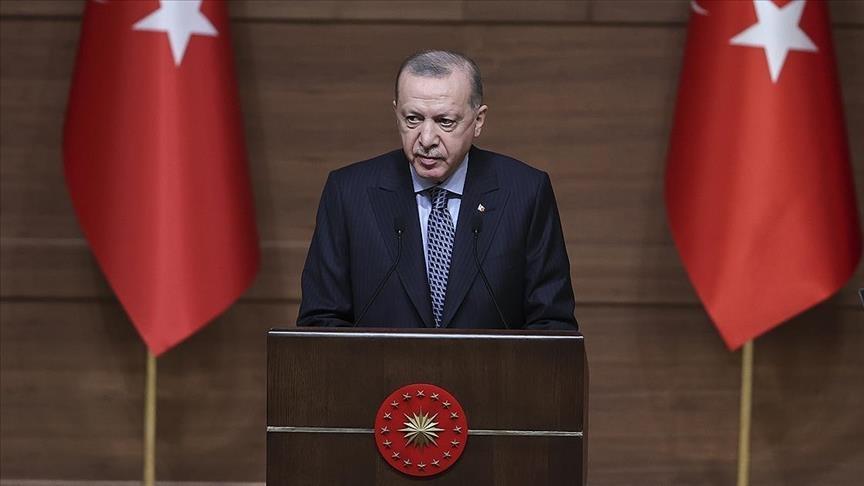President Erdoğan rebuffs 'pressure' by social media companies
ANKARA

Turkey will not buckle under the pressure by social media companies, President Recep Tayyip Erdoğan said on Jan.13, criticizing them for setting up offices in the country and earning money, but not adhering to legal obligations.
Following the fines imposed by the Turkish government, they have become compliant like “lambs,” Erdoğan said at a media awards ceremony.
“You will pay here as you pay in the West,” he added.
“We will not bow to the pressures of social media companies that consider themselves above the law in observing the rights and laws of our people,” he stated.
Erdoğan blamed social media companies for not complying with court rulings in Turkey against accounts found to support terrorism. “We can’t allow terrorism, and it’s propaganda to gain ground in the virtual world just as we don’t allow terrorism within our borders.”
Erdoğan emphasized that recent developments across the world demonstrated the importance of Turkey’s legal fight against “digital dictatorship and cyberbullying.”
Digitalization across the world has brought some radical changes and technology is at the epicenter of human life, enabling people to obtain information on a real-time basis, he said, adding that though digitalization has also triggered some challenges and risks.
Some of these challenges arising from new media instruments are cyberbullying, cyberterrorism and false news, and disinformation also peaked recently on social media, Erdoğan said.
“We surely cannot tolerate violent events targeting democracy and democratic institutions. However, we can also not accept the closure of people’s communication channels without any legal basis,” he stated, noting that the recent U.S. elections demonstrated how far the “digital fascism” could go. Last year, Turkey imposed a fine of 40 million Turkish Liras ($5.43 million) on multiple social media platforms including Facebook, Twitter and YouTube for not complying with a new social media law approved in July.
The law requires social platforms to appoint local representatives in Turkey.
So far, Russian social network VKontakte (VK), YouTube, French video-sharing technology platform Dailymotion and TikTok have decided to assign local representatives in the country.
The law allows Turkish authorities to remove content from platforms, rather than blocking access as they have done in the past and requires social media platforms to appoint a local representative to address authorities’ concerns.
As part of the new legislation, social media firms must respond to requests by the Turkish government in the Turkish language and must answer requests concerning personal and privacy rights within 48 hours.
The platforms should also publish semi-annual reports on their response rates to such requests.
Companies that still did not follow the law after fines had their bandwidth slashed by 90%, essentially blocking access.
















